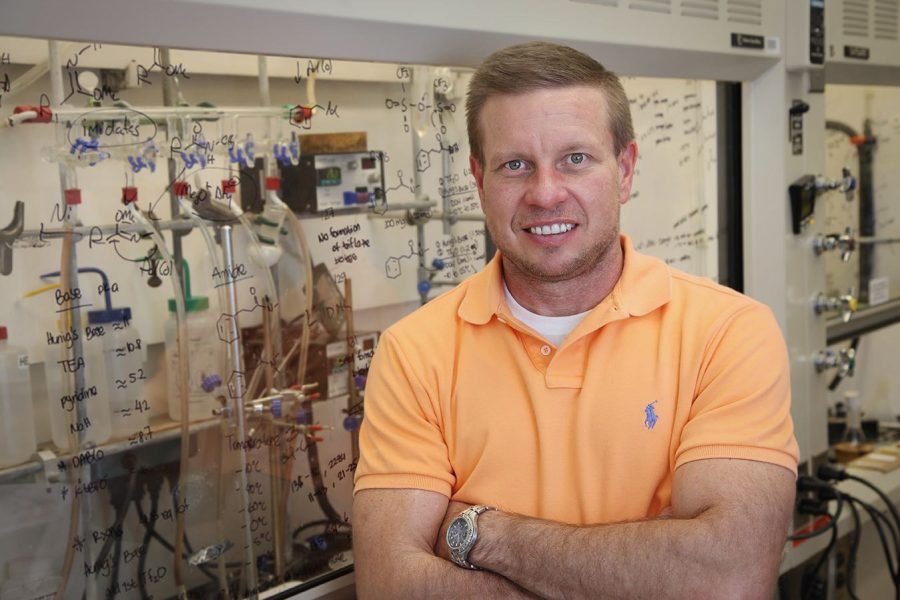Chemistry professor awarded $1,049,128 cancer research grant
March 28, 2023
On Feb. 15, the Cancer Prevention and Research Institute of Texas (CPRIT) awarded 37 grants, amounting to a total of $65.4 million, to nine University of Texas (UT) institutions. Among these CPRIT grant recipients was Dr. Douglas Frantz, a professor in UTSA’s Department of Chemistry, who was awarded one grant totaling $1,049,128.
This grant provides crucial financial support for the Center for Innovative Drug Discovery (CIDD), a partnership between the University of Texas Health Science Center at San Antonio (UT Health) and UTSA, whose mission is to make advancements in cancer drug development.
This is not the first time that UTSA research has received funding from CPRIT. In 2021, Frantz, a co-founder of CIDD, and his collaborator from UT Health, Dr. April Risinger, received the High-Risk High Impact award, which kickstarted their research in drug discovery.
Created by the Texas Legislature, CPRIT has generously provided financial support to Texas institutions since 2007, aiding the fight against cancer. CPRIT has become the largest cancer research and prevention program in the United States and the second largest in the world. Over its 16 years of operation, the agency has awarded over $3 billion in grants to research institutions across Texas and over $1.7 billion to UT institutions. CPRIT has allowed for significant advancements in the efforts of cancer research, treatment and prevention around Texas and is currently making a huge impact here at UTSA.
Frantz and Risinger’s research revolves around ovarian and triple-negative breast cancer.
“My group really plays at the interface of chemistry and biology,” Frantz said.
His team isolates naturally occurring compounds that possess anticancer properties and uses them as a blueprint to design a cancer drug, a process further aided by the recent CPRIT grant.
This grant is not easy to come by. Aside from the taxing preparation that is required to submit for a grant, CPRIT is very competitive; however, Frantz gave credit to the Max and Minnie Tomerlin Voelcker Fund for the generous donations that helped get the pharmacology core off the ground.
“When we got the reviews back from CPRIT, they told us that because we had all the pieces of the puzzle here at UTSA to actually do drug discovery, that’s what sold the grant to them because they believed in us, that we could actually do this. If it was not for the Voelcker fund and the philanthropic support that they’ve given us throughout the years, we probably would have never gotten the CPRIT grant,” Frantz said.
With this CPRIT grant, within the next three years, Frantz hopes to have a set of three to five compounds that have been determined to possess anticancer properties for triple-negative breast and ovarian cancer cell lines and go in vivo, in other words, in animal models. If they acquire proof that these compounds work in an animal model, they will then go to the FDA with their data and file an IND, allowing them to potentially enter phase one of clinical trials. Within five years, they hope to be able to take their discovered drug to bedside treatment.
“The CPRIT funds have been just a godsend for us to be able to actually pull this off and really push this technology forward in the next three years,” Frantz said.












